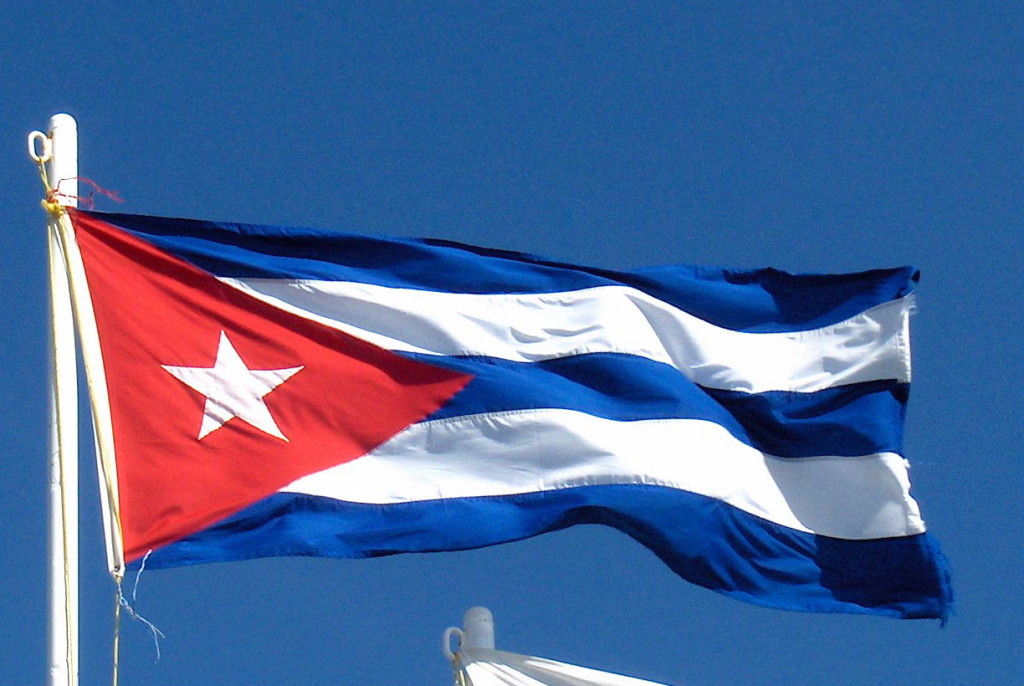Post Views: 404


Here is a great article from Strafor Global Intelligence. It is another great piece from George Friedman in his Geopolitical Dairy.
But first here is the news from Stratfor about the recent release of prisoners in Cuba including Alan Gross who is now home for Hanukkah. I guess you could call this more than inching at this point. More here.
The United States and Cuba have been making anomalous but inconclusive gestures toward one another over the past year, and this trend appears likely to continue. This weekend, the Panamanian government announced that a Cuban delegation would attend the Organization of American States (OAS) summit in Panama in April, ending the country’s half-century hiatus from the U.S.-backed bloc. Attention at the summit will be focused on whether the two countries will take the opportunity to again make public contact. Altogether, the growing series of seemingly isolated and inconsequential political contacts between Washington and Havana suggests that the coming year may bring a marked improvement in U.S.-Cuba relations.
The first notable public contact came nearly a year ago, when Cuban President Raul Castro and U.S. President Barack Obama shook hands during a carefully scripted encounter at the funeral of late South African President Nelson Mandela. In June, according to unconfirmed reports, Uruguayan President Jose Mujica delivered a letter from Obama to Castro suggesting that Washington’s trade embargo on the island nation would be discussed.
In September, Panama’s foreign minister visited Washington and openly pushed for Cuba to attend OAS’ annual Summit of the Americas. The bloc lifted its decadeslong ban on Cuban participation in OAS activities in 2009, but Cuba has yet to attend one of the bloc’s summits. Cuba’s attendance at the summit would not only be a symbolic milestone. Obama attended the last such meeting, held in 2012 in Colombia, and the summit would be an ideal place for high-ranking officials from both sides to meet. Finally, a week ago, Obama confirmed that talks have been occurring between the United States and Cuba seeking the release of former U.S. government contractor Alan Gross, who has been held prisoner in Cuba since December 2009 on espionage charges.
Cuba’s Shifting Geopolitical Environment
It is not particularly surprising that Cuba and the United States are seeking closer relations. Havana has few opportunities for economic growth, and existing sources of income such as tourism and its nascent private sector provide little foreign currency for public finances. Cuba weathered the economic decline it experienced after the fall of the Soviet Union, but its economy — which is overwhelmingly controlled by the Cuban government and armed forces — is unsustainable over the long term.
This problem stems primarily from the country’s historical dependence on external patrons for financing. For example, Cuba relies heavily on Venezuelan economic assistance, particularly energy shipments. The island nation consumes just under 100,000 barrels of Venezuelan oil and refined products per day, nearly 60 percent of Cuba’s total oil consumption. With Venezuela slipping further into a downward economic spiral, and with Venezuelan oil shipments becoming increasingly uncertain, Havana is naturally seeing greater value in improving relations with the United States. If Venezuela moves to reduce or end altogether its oil assistance abroad, the rapprochement between the United States and Cuba will likely accelerate.
Though political hostility toward the Cuban government has decreased in the United States since the end of the Cold War, domestic U.S. politics will continue to constrain the White House’s ability to lift the Cuban embargo. The principal document securing U.S. sanctions against Havana is the Cuban Liberty and Democratic Solidarity Act of 1996, according to which sanctions can be removed only after the president consults with Congress, theoretically giving the legislature some power to determine when and how relations are improved. In addition, Cuba must meet a set of criteria before Congress will approve any initiative to better relations with Havana, including the holding of free and fair elections and the removal of both Raul and Fidel Castro from any position of power.
Havana cannot meet these demands immediately, mostly because of its fear about what rapid change could bring. Sudden political and economic changes to the country’s ossified political order would destabilize the government. Thus, Raul Castro will likely continue to move cautiously and incrementally toward any potential opening with the United States. From the U.S. side, the requirement to submit any eventual deal to congressional approval may slow any concrete steps to end the embargo. Though Obama has significant room to maneuver on the issue of Cuba, he will remain somewhat constrained by domestic politics, particularly with the Republicans taking full control of Congress in 2015.
The first point of negotiations between the United States and the Cubans will likely be the issue of Gross — a roadblock that may need to be cleared before the countries can proceed toward improving bilateral relations in other areas. The American’s failing health makes the issue time-sensitive, but Obama would undoubtedly need to make certain concessions to Havana to secure a deal. Washington may be considering a prisoner swap to free Gross, perhaps by trading jailed Cuban spies such as the so-called Cuban Five for the jailed American. If a deal on the Gross issue is indeed struck, a roadmap toward further talks on lifting the embargo is likely to follow.

